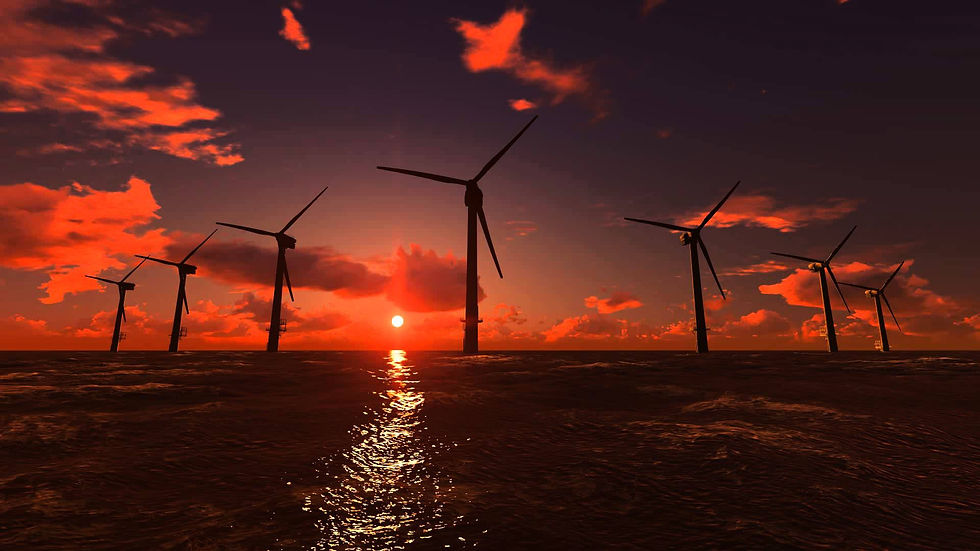How will the Biden administration impact US oil and gas production?
- MarketsTalk

- Jan 26, 2021
- 3 min read
On January 20, Joe Biden became the 46th president of the United States and while many are happy to see the new president at the white house, that is probably not true for those who work or invest in the traditional energy sector. In fact, it looks like Biden is going to keep his promises and take the opposite path of former President Donald Trump, whose deregulatory policies on fracking led the United States to become the world’s first oil producer, with a crude oil production that averaged 13.3 million bpd in 2020, a 9% increase from 2019 production levels despite the pandemic (U.S. Energy Information Administration). Also, in December 2018, it was reported that the US had turned into a net exporter of oil, breaking more than 70 continuous years of dependence on foreign oil, while liquefied natural gas (LNG) exports had quadrupled compared to 2017, leading the country to become the world’s third largest LNG seller in 2019. But environmental concerns about global warming pushed Joe Biden and many other Americans to think about converting the energy industry, in a shift from fossil fuels to renewables. While the “shift” would certainly be better in terms of Co2 emissions, many ignore the potential economical consequences of such choices.
Currently, the oil and gas industry employs 10.3 million people in the United States and represents nearly 8% of the nation’s Gross Domestic Product. 2020 has been a historically tough year for oil and gas producers, with the pandemic pulling oil prices into negative territory back in April and an average price for the year of US$39.68 a barrel (West Texas Intermediate). Many shale oil firms could not make a profit with Oil selling at less than US$50, which caused 44 bankruptcy filings just in the first half of 2020 and debt to rise to US$240 billion maturing until 2023 (Moody’s). However, while oil prices are recovering and the worst is probably over for shale producers, the new president’s first actions are posing a real threat to the long-term existence of such businesses. In fact, Biden is suspending the sale of oil and gas leases on federal land, where the U.S. gets 10% of its supplies, causing harm particularly to the drillers in New Mexico. In addition to that, President Joe Biden has fulfilled the campaign promise to cancel the Keystone XL oil pipeline, which would connect Canada and the USA. Frank Macchiarola, senior vice president of policy for the American Petroleum Institute, said that “In the first couple of days of the new administration, they are taking actions that will harm the economy and cost Americans their jobs…We’re concerned, and everyone in the country should be concerned.”
Many oil producers bought, and stockpiled leases and drilling permits last year fearing more restrictions under Biden’s administration, which allows many major players to keep their activities running for years to come. This strategic move from many companies could be essential in the medium-term, considering that the new administration’s first hire at the Bureau of Ocean Energy Management was Marissa Knodel, a former activist with “Friends of the Earth”. Having an environmental activist in such an important position could be dangerous, since “green” ideological choices might be anti-business and threatening for the economy. A second major problem is the administration’s attempt to combat supply rather than demand, which could be catastrophic when the economy recovers. In fact, growing economies need more and more energy to sustain their growth and it is difficult to imagine that the “Green New Deal” will be able to satisfy that need efficiently in a short period of time at a cheaper cost. Let us pretend that the economy recovers and so the energy demand, but US oil companies are having a hard time because of government restrictions and clean energy still does not compensate for that. That would ultimately result in cheap and worse quality oil coming in from OPEC countries, a competitive disadvantage for American companies, and a loss of jobs. All of that without reducing global emissions.
In conclusion, investments in clean energy are necessary for a better future, but the US government should be careful when taking action against its own oil and gas companies until a clean energy supply will be enough for a growing economy’s demand. For now, oil is still far from over and the amounts of investments needed to get rid of it, are going to be huge.

SIGN UP and become a member for more content and discussions!

Comments